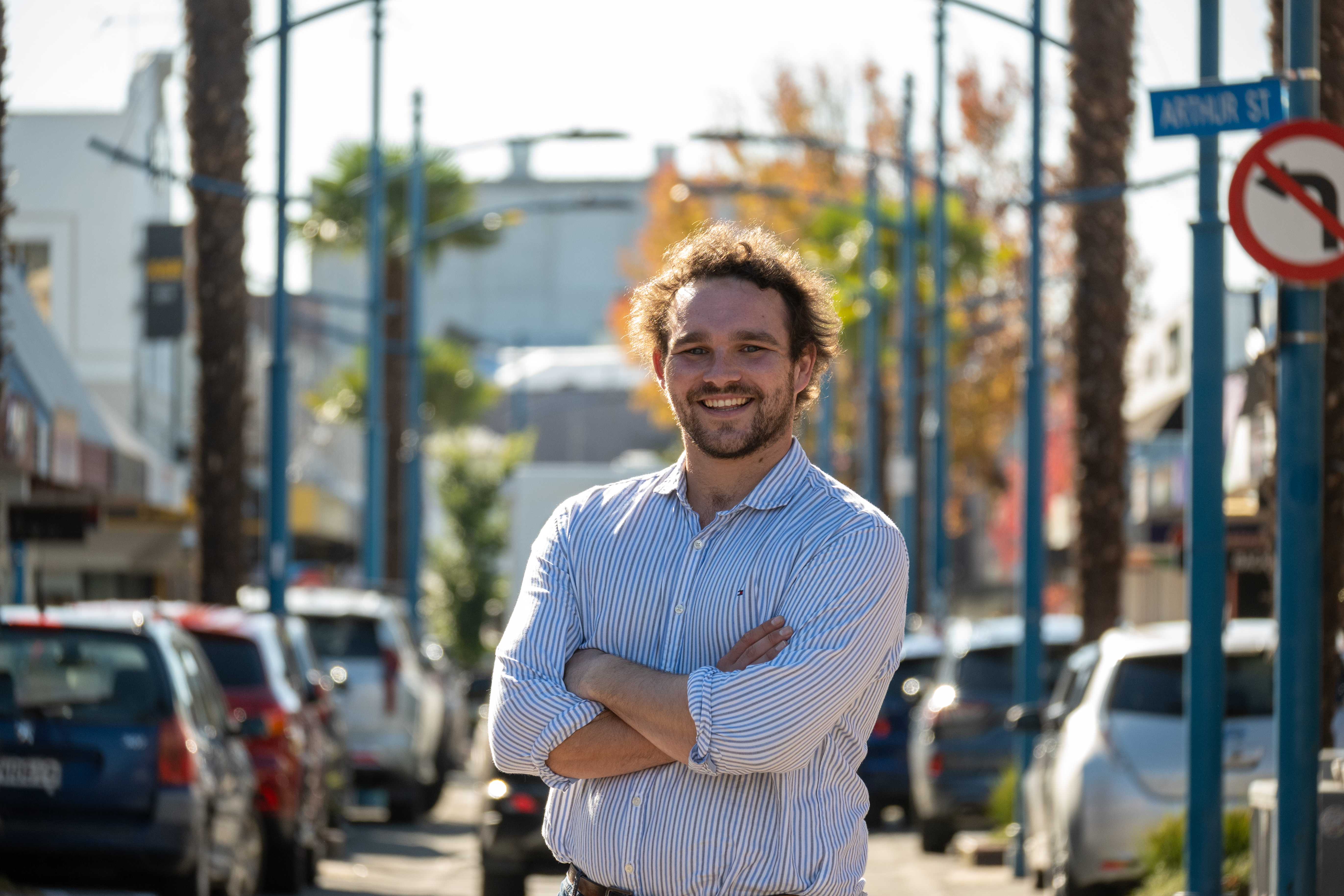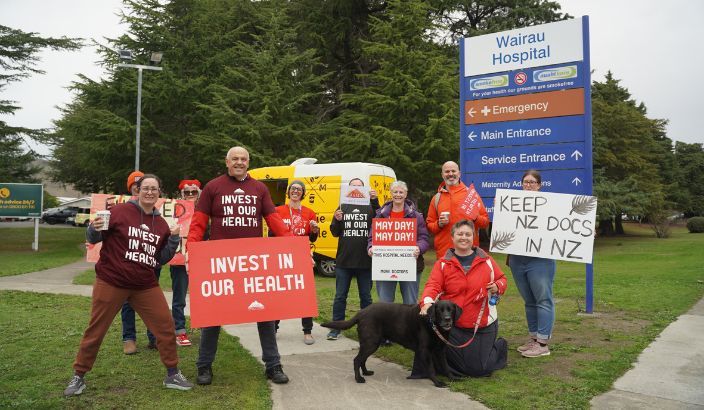Doctors, home carers share health system concerns


Wairau Hospital senior doctors get their message across on Thursday outside the hospital. Photo: William Woodworth.
Both specialised doctors and home support workers took strike action on Thursday, due to their shared concern about the state of New Zealand’s health system.
Senior doctors under the Association of Salaried Medical Specialists and E Tū unionised support workers at Access Community Health took to the picket lines on May 1 with aligned requests of safe staffing levels, work conditions and pay negotiation issues.
Local doctors picketed outside Wairau Hospital, while Access Community Health staff joined the larger Nationwide Day of Action union protest in Nelson.
“We’re here because our health system is in crisis, our contact negotiations have fallen down and we have no recruitment and retention of our doctors ... so many leave for better pay and conditions [which is] just perpetuating the problem,” said Dr Nikki Rolton, from the Emergency Department at Wairau Hospital.
“All medical professionals want to provide the health care that people deserve - we can’t do that being a quarter of the workforce short every day and especially in a smaller regional hospital like Wairau, where there are less staff to cover those gaps.
“We’re training doctors for export because young doctors see hiring freezes despite positions being vacant, cuts to Health New Zealand’s IT staff, and that New South Wales, which is the worst-paid state for doctors in Australia, has their specialists start on similar to the top rate of our pay scale.
“It’s not only uncompetitive for doctors to move to New Zealand, it’s uncompetitive for the doctors New Zealand trains to stay.”
Doctors say their want to care and do their duty comes at personal cost, but this strike is a reminder their efforts shouldn’t be taken for granted.
“We’re very low on staff, we’re doing a lot of extra cover, and it’s hard when you miss your family, you miss being home, and you never know what you’re doing week to week because there’s always shifts to cover”, said fellow ED team member, Dr Kay Hall.
“Our department has got seven doctors, but many here have three or four senior doctors so there’s situations where it’s you or it’s nobody involved in direct patient care.” Dr Stefan Schulze, in Wairau’s paediatrics ward, says the inability to recruit has him worried for parents that need their expertise.
“We are already the smallest paediatric department in the country with difficulties recruiting more staff, so we’re in average every third night on call because there’s nobody there who would do our work. It’s only for so many years you can sustain that ... the workforce is getting older and older and if you can’t recruit because we’re not competitive in the market, then it’s got lots of knock-on effects.”
The issues within the healthcare system are not isolated to the region’s hospitals, as in-home care workers for Access Community Health went on strike in protest of work conditions they consider unreasonable with consequences for the heavily elderly population they assist.
After a 2022 post-Covid pay rise was repealed, the Ministry of Health recommended a 3 percent raise after Access gained 7 percent in funding, but nothing has changed for workers.
“We supply hospital-grade care - dealing with health checks, administer medications - at people’s homes with no equipment, while it takes 30 minutes to get support from Access Community Care on the phone.”, said a local worker, wishing to remain anonymous.
“Visit times per patient have been cut, we’ve lost sick days and pay steps, they don’t live up to contract agreements around breaks, and don’t contribute towards vital things like phones, car insurance or maintenance when we’re using our own to do these care visits.
“Those entrusted to look after the elderly shouldn’t be accepting these conditions as society is measured by how they treat their elderly, and I’m really worried for the people we support with the dire consequences already happening”.
